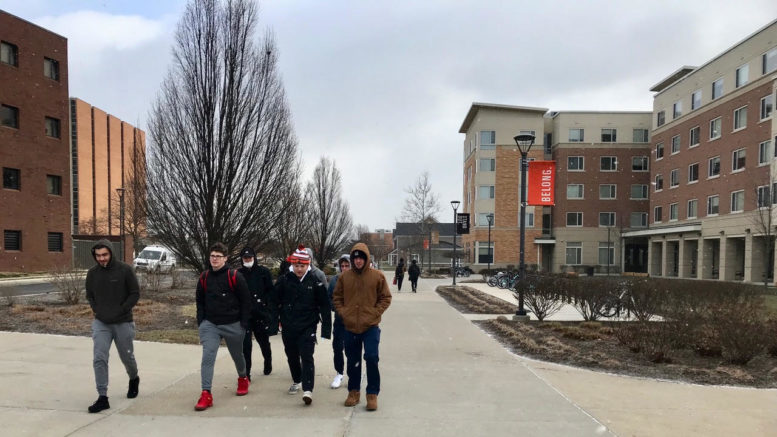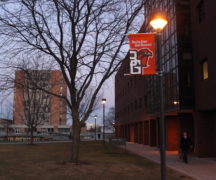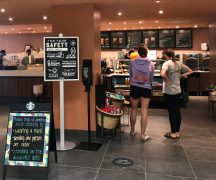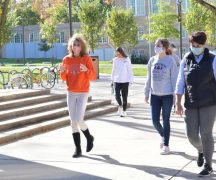By DAVID DUPONT
BG Independent News
Bowling Green State University students are returning to campus just as the virus spurred by the highly contagious omicron variant is peaking.
The university’s Chief Health Officer Ben Batey characterized it as “a pretty a massive spike.”
So the university is faced with trying to establish protocols that both address the concerns about health and allow campus life to maintain a semblance of normality.
“What you’re going to see is very similar to the fall semester, and the actions that we’ve taken throughout the pandemic, that have proven to be effective at slowing down case spread across campus,” said Batey.
Batey’s hope is that the virus peaks quickly then drops off just as fast. The thinking is that “the quicker the wave comes on, the quicker the decline.”
The hope is “we’ll see just as a quick a decline” with the cases returning to “a low manageable level,” he said. “We’re hopefully getting close to the peak of cases.”
Batey said: “Honestly, my biggest fear is the sheer number of disruptions, not only for the BGSU campus, but for our community, state, and nation.”
Even with the less severe cases that come with the omicron variant people still need to isolate. Those disruptions in staffing are occurring at the same time that the university’s offices are already facing staffing shortages.
Emergency rooms and urgent care facilities are also finding it difficult to maintain enough staffing to handle demand. That demand comes not just from the coronavirus, but from flu and colds, which are also running through the community. “We’re really being mindful looking at navigating these next couple weeks to make sure we can keep those services on line.”
The university has adopted the newest guidance from the CDC that recommends five, not 10, days, of isolation for those with the virus who are fully vaccinated and test positive but who don’t have symptoms. Those individuals, however, should continue to wear masks.
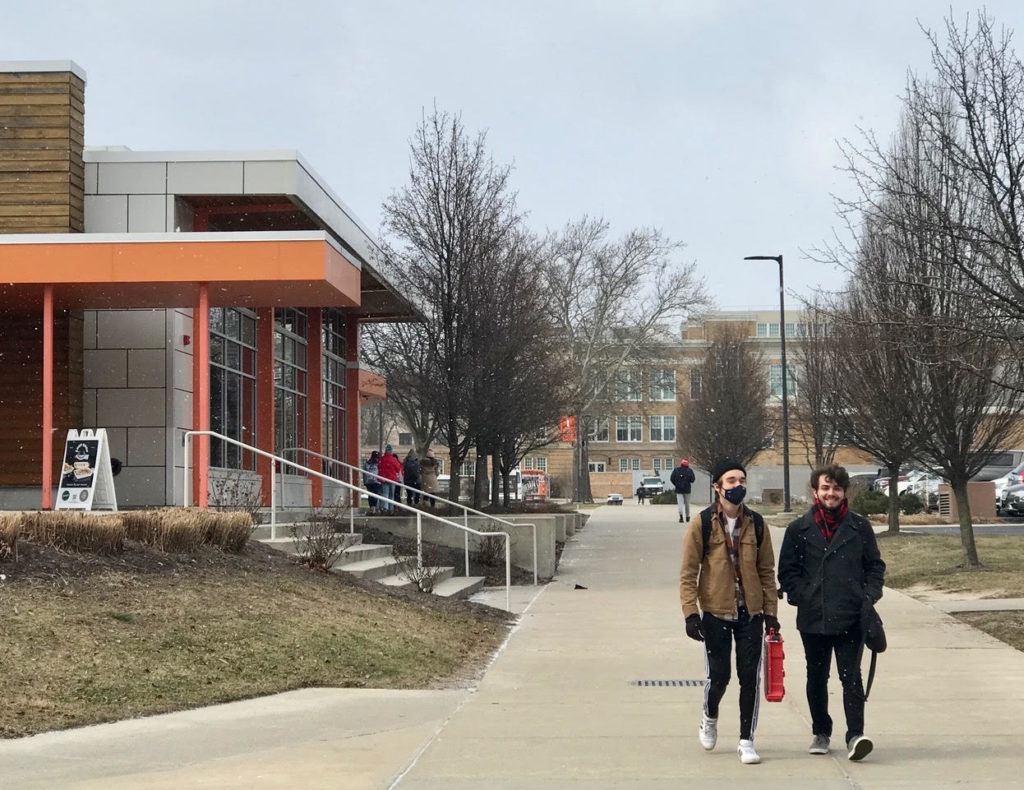
“We’re highly encouraging booster doses for entire campus,” Batey said. “That’s the way to get highest level antibody protection.”
The university put in place a vaccine mandate, but about 2,500 students, faculty and staff have received exemptions from that mandate. They will be subject to stricter quarantine requirements when they come into contact with someone infected with COVID-19.
[Related story: At BGSU, vaccine mandate exemptions were on an ask-and-you-shall-receive basis]
Someone who is fully vaccinated and exposed is asked to wear a mask. Those not vaccinated who are exposed will have to quarantine. Also they are required to wear a mask outside as well as inside, though Batey admitted that’s difficult to enforce.
The exemption process does give the administration a list of those likely not vaccinated for determining its response in the case of an outbreak.
The university is focusing its testing on those who have symptoms.
The university has secured a stock of self-administered tests that are widely available on campus. “We’ve been blanketing campus with availability of testing to help to diagnose quickly and take appropriate action,” he said.
The university will also resume on-site tests Tuesdays and Thursdays in the student union. Medical lab science students will be conducting the tests.
The university, however, will not be doing any surveillance testing, even of those who are exempted from the vaccine mandate.
Tests are a limited resource, and the university wants them to be available to those with symptoms. This will keep people from flocking to the urgent care centers and emergency rooms to get tested.
Social distancing in classrooms has not changed. The university continues to look at its largest sections and find alternative spaces where students can spread out more, he said.
If appropriate spaces can’t be found, some classes may have to be remote for a short period if there’s an outbreak.
Faculty members on the faculty list serve, however, have reported smaller classes filled to the maximum capacity. In a communication with its members, the BGSU Faculty Association said faculty members can use their best judgment, in consultation with their dean, about what is needed for in-person class meetings and other activities.
“A faculty member has the ability to ask the students to put a mask on,” Batey confirmed.
And, the union noted, the faculty member can cancel the class for that period if the student refuses, and then report the student for violating the code of conduct.
Batey said a university-wide return to remote learning is not being considered.
“I think we’re set up for the start of this semester and throughout,” Batey said. “We’re at a point in navigating this virus where we need to be very flexible. … It’s not all or nothing.”
If a number of students in a class contract the virus, or the faculty member does, or even has a child that’s positive, “they may need to be out may need to switch that class modality to be remote until they get through that wave.”In other cases, such as in lab facilities where students can spread out, the class may be able to carry on.
“We’re looking to navigate this by a case-by-case basis and allow faculty make decisions in real time,” he said.
Exchanges online from faculty shows they already are having to do that. Many professors are working through how to provide remote access to students who are in isolation or quarantined and not able to attend class.
The union stated that though the administration states that a class may move online if a faculty member tests positive, the faculty member is able to take sick leave until they have recovered.
University events will be held in person, Batey said, though that may mean reduced capacity and a virtual option.
Social distancing in other spaces such as the library and student union remains an individual choice. “There’s a level of personal responsibility,” Batey said.
“I think we had great compliance in the fall. I think students have done a fantastic job really adopting our protocols especially the mask requirement,” he said. Many are even masking up outside. “They’re really trying to do their part to stem the spread.”

